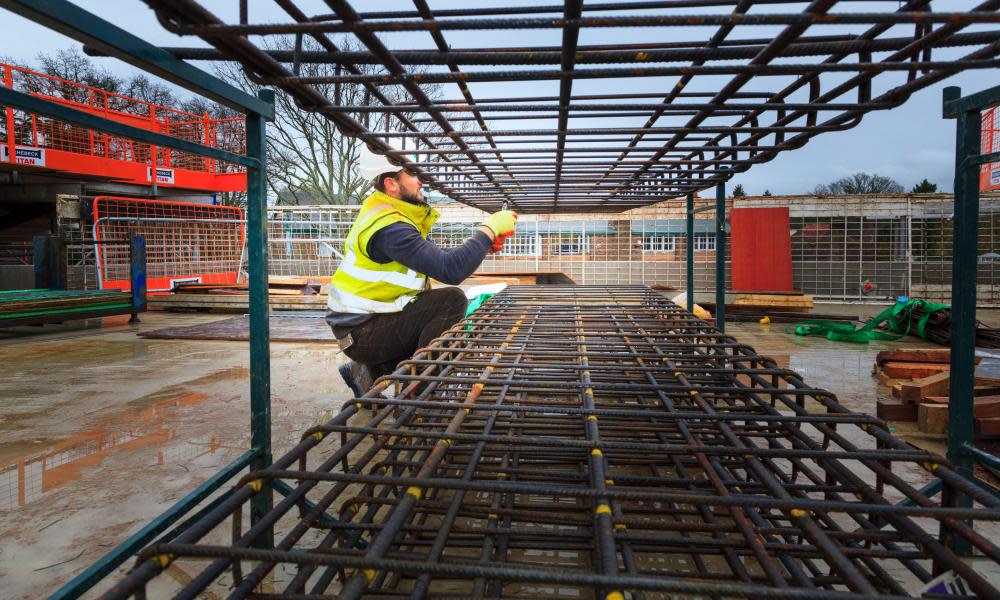Brexit: UK construction costs ‘have risen much more steeply than EU’

The cost of materials and labour for construction have increased more steeply in the UK than the EU since the Brexit referendum, new research has found.
Analysis of data from EU member states, the central EU database, Eurostat, and the UK Department for Business, Energy and Industrial Strategy show that between 2015 and 2022 the cost of construction materials including cement, timber and steel increased by 60%.
At the same time, the cost of labour in the UK went up by 30%.
Related: ‘Brexit has lost us 25% of sales’: British bike storage firm buckles under red tape
In the EU, where similar pressures including supply chain and Covid problems applied, the cost of materials went up 35% while labour in countries such as Denmark and the Netherlands went up by just over 14%.
The UK Trade and Business Commission (UKTBC), an independent body of experts set up to track the impact of Brexit, said the research would deepen growing concerns over labour shortages in the UK.
D’Maris Coffman, the director of the Bartlett school of sustainable construction at University College London said Covid and the energy crisis had also driven up costs. “On balance, I would agree that Covid is the least of the three, probably a fifth all told, and that Brexit and the energy crisis are probably about two-fifths each, about 40% each,” she said.
Hilary Benn, a Labour MP and former chair of the House of Commons Brexit committee, said it was “clear that Brexit and its subsequent trade deals have created many more problems for UK businesses than opportunities”.
Last week a thinktank estimated Brexit had led to a shortfall of 330,000 in the UK labour force, mostly in the low-skilled sectors.
The UKTBC has now launched a nationwide consultation to gather evidence on the biggest challenges faced by Brexit.
Small businesses exporting to the EU have been particularly hit.
On Monday a British entrepreneur at the firm Cycloc which makes indoor bicycle storage systems told how it has lost 25% of sales revenue because of Brexit.
The Construction Products Association said Cycloc’s experience mirrored that of small businesses in the building sector. “Major companies that are exporting construction products to the EU have large teams and can deal with the admin, the bureaucracy, the additional costs. The key issue is for the smaller firms that would be exporters,” Noble Francis, the economics director of the Construction Products Association, said.
“They have struggled with the additional resource cost, admin, bureaucracy-wise and so that’s why you end up at a point where exports of construction products to the EU are still more than one-third lower than before.”

 Yahoo News
Yahoo News 
